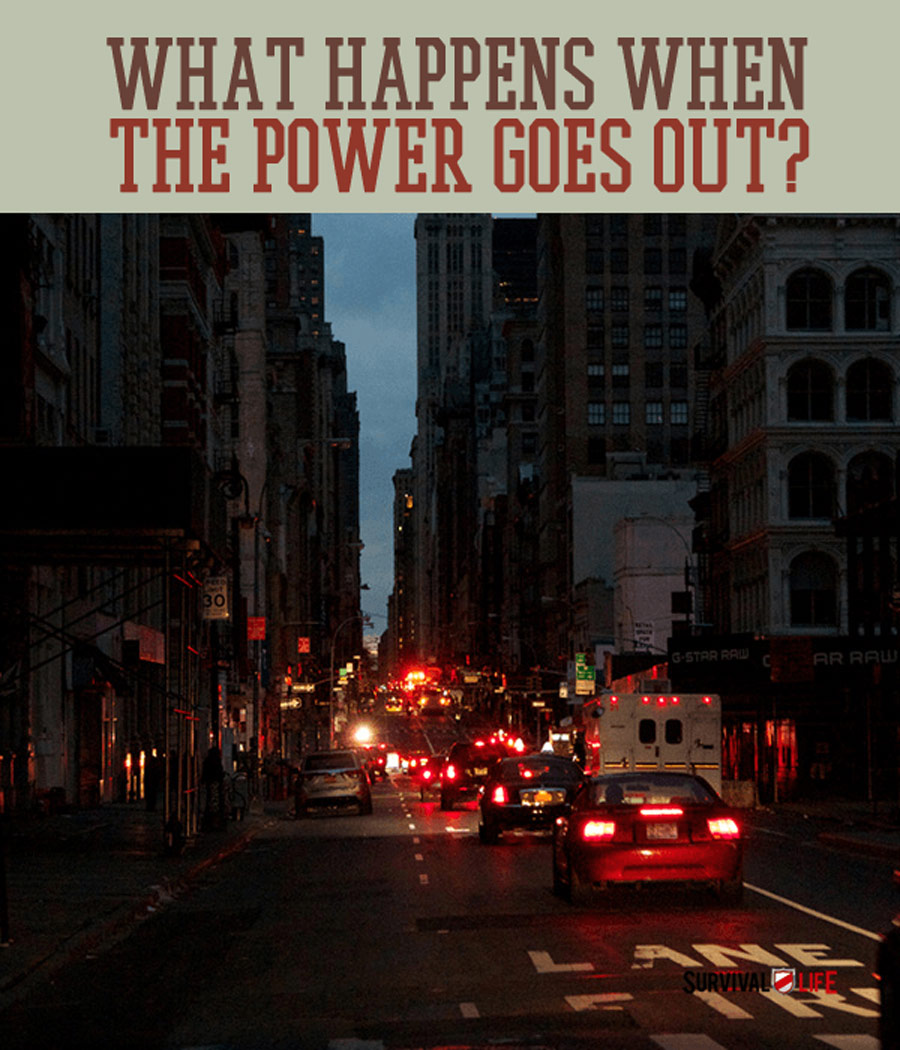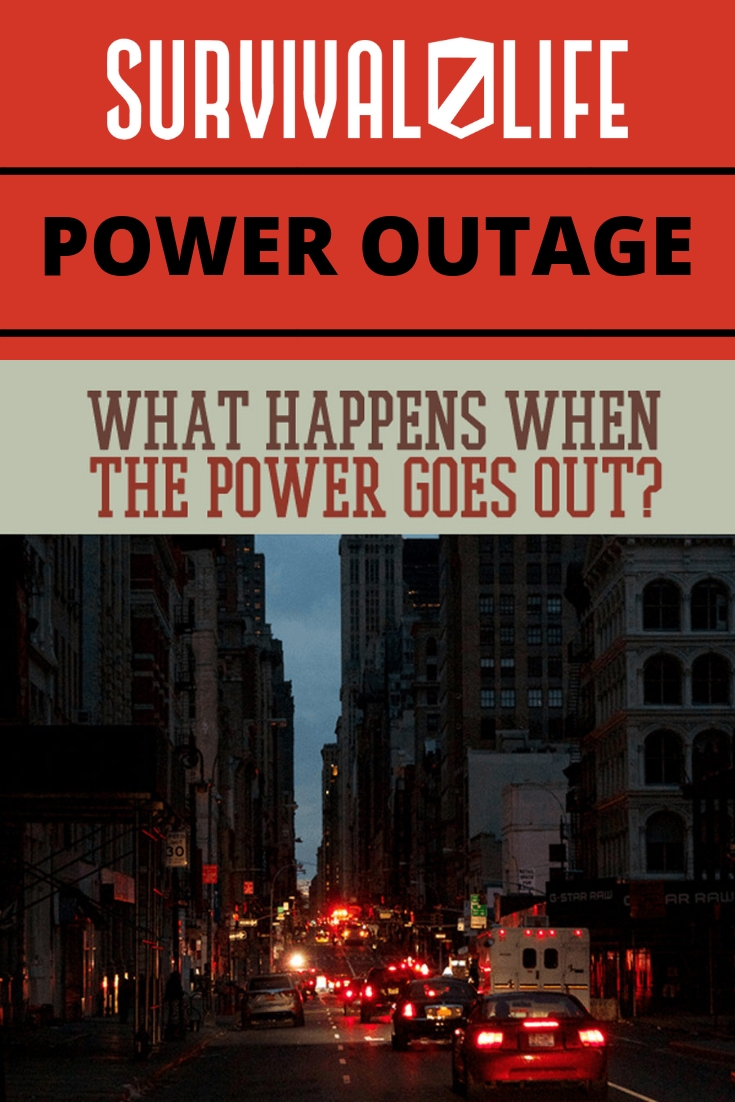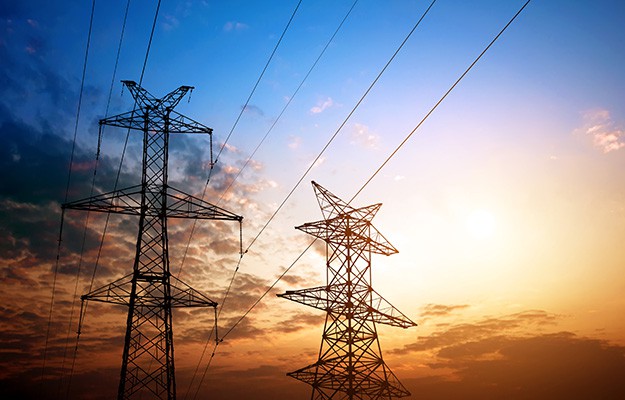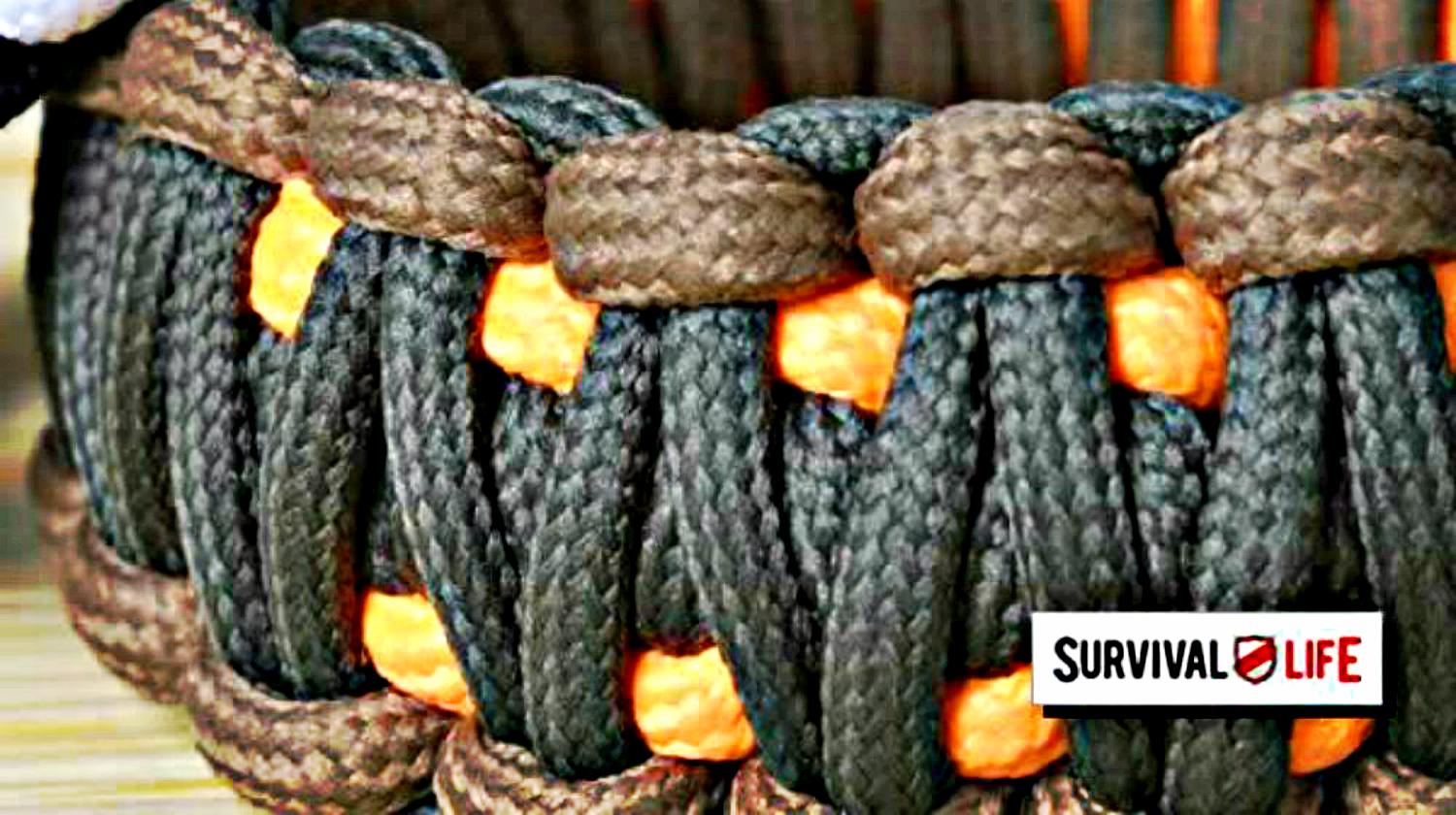Alternative Energy
POWER OUTAGE: What Happens When Power Goes Out?

You’re enjoying a relaxing evening watching television when suddenly all the lights go out. The TV shuts off and the room goes quiet. The sound of silence is foreboding. You just lost all electrical power and you immediately get uneasy. You look outside the window. The whole neighborhood is dark. There are no traffic sounds, no noise, no street lights–all is still and silent. You begin to see flashlights and candles flickering in the windows of nearby houses.
And then it sinks in. You won’t have lights, heat, air conditioning, TV, or anything electrical until the utility company can restore power. Your furnace and air conditioner won’t work. Your refrigerator and freezer stopped functioning. You pick up your cell phone and discover that cell phone service is no longer available. What is happening?
There may have been indicators that a power outage was coming. Excessive demand on the power grid may have prompted the utility company to intentionally (or unintentionally) reduce voltage on the grid causing a brownout. It can last for minutes or hours. It is imposed to reduce electrical load on the grid and prevent a total loss of power. It’s typically caused by electrical demand so strong there isn’t enough energy for all the users trying to draw power from the electrical grid. As a result, the 115-120 volts typically available could be as low as 105 volts. This causes motors and appliances to struggle to operate properly. They run at reduced speed and may even run backwards. A motor that was running when the brownout occurred can heat up. Excessive heat causes wear on components and can damage the circuitry in appliances causing early failures. If it gets too hot, the insulation around wires could melt.
If you still use incandescent lights, they may dim. And the images on older CRT displays or televisions with picture tubes can shrink and become fuzzy. Power supplies in electronic devices could malfunction causing digital data loss.
Sometimes there simply isn’t enough power available so utility companies will declare a “stage 3” power alert and institute a short term temporary shutdown called a rolling blackout to conserve power while minimizing the effect on everyone connected to the grid. This loss of power is rotated among users for typically an hour at a time. The effect is a reduction in the overall load on the electrical grid. Utility companies call this “rotational load shedding” or “feeder rotation.” It’s used as a last resort to avoid a total loss of power because demand has exceeded the supply of electricity. Not all users are affected. Emergency and law enforcement buildings are not subject to the rolling blackout. We need them powered up for public safety.
Finally there is the sudden shutdown of all electrical power–the blackout. It can affect a building, a block of homes, part of the city, the whole city, county, state, or the entire national power grid. A blackout can last minutes, hours, days, or even weeks. I found cases of power being out for as long as two months. Extended power outages are very difficult for societies and economies to manage.
When the power grid shuts down, all electric motors immediately stop operating. Stoves, ovens, refrigerators, and freezers won’t work. Food remains cold or cool, but will soon begin warming. And you can’t use your electric range or microwave.
The furnace doesn’t blow warm air. The air conditioner can’t cool the house. Even cooling fans no longer operate and stop spinning. If it’s cold outside, water in your plumbing pipes may begin to freeze. And those large uncovered windows will soon allow the inside to become chilly.
Pumps and motors that keep life normal suddenly don’t work. The pump to bring water up from the well no longer works. The pressure in city water lines may decrease such that only a slow drip comes out of the faucet. And that sump pump keeping water from seeping into your basement or under your house no longer does its job.
Medical life-support devices that operate on electricity won’t work. The air purifier is off. Medications that you keep refrigerated begin to warm threatening their effectiveness. Even the four and seven watt night lights are all dark.
Anything you put off or forgot to do will become an issue when you are without power. Your cell phone battery can cause your phone to shut down until the battery is re-charged. And it may not work anyway. The cell phone towers may also be shut down–or taken over by emergency incident first responders. You may find communication by cell phone slow and disruptive. You may not be able to text family and friends. If emergency power to radio and TV stations fails, you may not be able to hear or see and thus monitor the outage.
Electronic devices and appliances without battery backup will not energize. Any computer data you were working with may be lost or corrupted by the sudden power outage. When power goes out some electronics will shift to battery backup and flash a “power out” warning light.
Besides lights not working in your home, your telephone may be disabled preventing communication by phone. Digital phone service provided by your cable operator may not work. And even though the network hubs for the Internet usually have backup generators, keeping them supplied with fuel may be a challenge. If these generators stop, the servers will fail and communication by Internet will cease until power is restored. All over your area, life without electricity is quickly transformed and the effect spreads rapidly. Life begins to move at a slower pace.
Your animals will look about trying to understand why it’s so quiet and dark. They’ll look to you for guidance and reassurance. You family will also look to you for answers.
If you decide to take your vehicle out of the garage to drive to a location with electricity, you may discover your automatic garage door opener won’t lift the door so you can drive out. Did you learn how to over-ride the door’s opening mechanism?
Outside, all the stop lights are out. While most drivers will be considerate and treat all intersections with darkened traffic lights as four-way stops, some people will ignore rules of etiquette and drive right through. These unsafe and unwise actions can increase the number of accidents.
Some people will be caught on the top floors of high-rise buildings. Some will be stuck in elevators that no longer work. And others will be marooned far from home in places that are also without electricity. Airports will begin operating on emergency power restricting air traffic, and commuter trains and buses may no longer operate.
Store cash registers won’t work and many clerks simply won’t have the skills to manually calculate a purchase. If these people don’t have a battery-operated electronic cash register or calculator, they’re lost. This reality is a sad commentary from the days when clerks wrote each price down on a paper bag, calculated the full purchase price on the bag, and then used the bag to not only hold the items the shopper bought but also to provide the buyer a receipt for their purchase.
Yes, life without power can be frightening. But it needn’t be if you prepare and learn how to survive a power outage.

Check out these related articles?
Best Long Term Food Storage Tips
Like this post?
Be sure to like us on Facebook so you can be the first to know about latest survival tips and off the grid living skills.
-

 Do It Yourself7 months ago
Do It Yourself7 months agoParacord Projects | 36 Cool Paracord Ideas For Your Paracord Survival Projects
-

 Do It Yourself9 months ago
Do It Yourself9 months agoHow To Make Paracord Survival Bracelets | DIY Survival Prepping
-

 Do It Yourself9 months ago
Do It Yourself9 months ago21 Home Remedies For Toothache Pain Relief
-

 Do It Yourself10 months ago
Do It Yourself10 months agoSurvival DIY: How To Melt Aluminum Cans For Casting
-

 Exports8 months ago
Exports8 months agoAre Switchblades Legal? Knife Laws By State











mahamanah
July 19, 2014 at 10:13 PM
yeah, at the store today – total was 17.30. gave em a 20. they rang it as 50 and couldn’t figure out what the change was. I said, 2.70. They didn’t believe me. Scary thing was it wasn’t a young kid working the register but someone old enough to know better.Hell, she probably used an abacus in school.
Dr. T. M. Lamb
July 24, 2014 at 2:24 PM
A Coronal Mass Ejection from the sun can disrupt ALL electronics and all power for everyone for YEARS.
An Electro Magnetic Pulse from a high altitude detonation burst from a nuclear weapon can do the same thing but usually for an area, such as the United States.
OR you can have a Terrorist attack on our power system and/or grid and bring the power down for years. IN FACT all three methods can bring the power down for years. Only difference is with a Terrorist attack you will still have your electronics they will still work, IF you can find power to power these devices. With an EMP or CME you will/can loose ALL electronic devices forever.
Homeland Security says: We WILL loose power one way or another, we will loose power one day.
The best info I have seen about making power to use in your home TODAY and to be prepared for a CME, EMP or Terrorist attack and OTHER neat survival info for the home, is at: http://www.iplantosurvive.info
Pingback: Ready Your Home for a Power Outage | Survival Life | Blog - Survival Life | Preppers | Survival Gear | Blog
Pingback: Ready your Home for a Power Outage | Prepper News
Pingback: Prepping with Ham Radio | I Am Getting Prepared
Pingback: Emergency Survival Kit To Have At Home | Survival Life
Pingback: Power Outage: What To Do When The Power Goes Out
Pingback: POWER OUTAGE: What Happens When Power Goes Out? - Survive!
Pingback: POWER OUTAGE: What Happens When Power Goes Out? | survivalisthandbook.com
Pingback: POWER OUTAGE: What Happens When Power Goes Out?
Pingback: POWER OUTAGE: What Happens When Power Goes Out?
Pingback: Winter Storm Survival Tips | Survival Life
Pingback: Winter Storm Survival Tips | Survival Life - Survival Shot